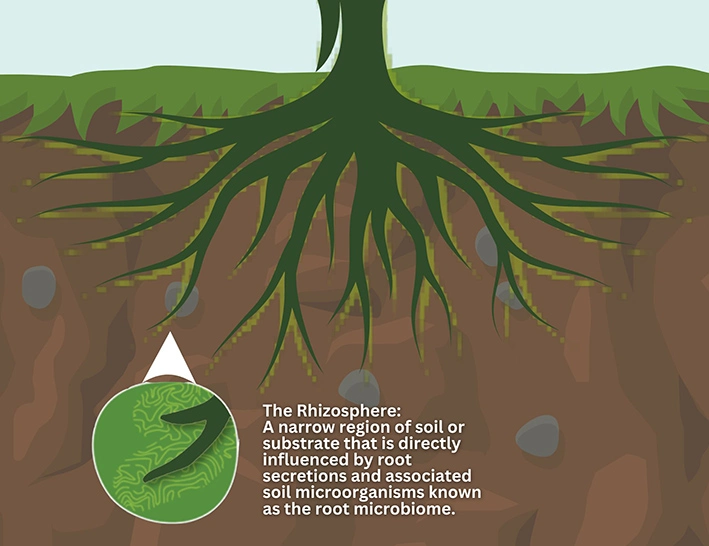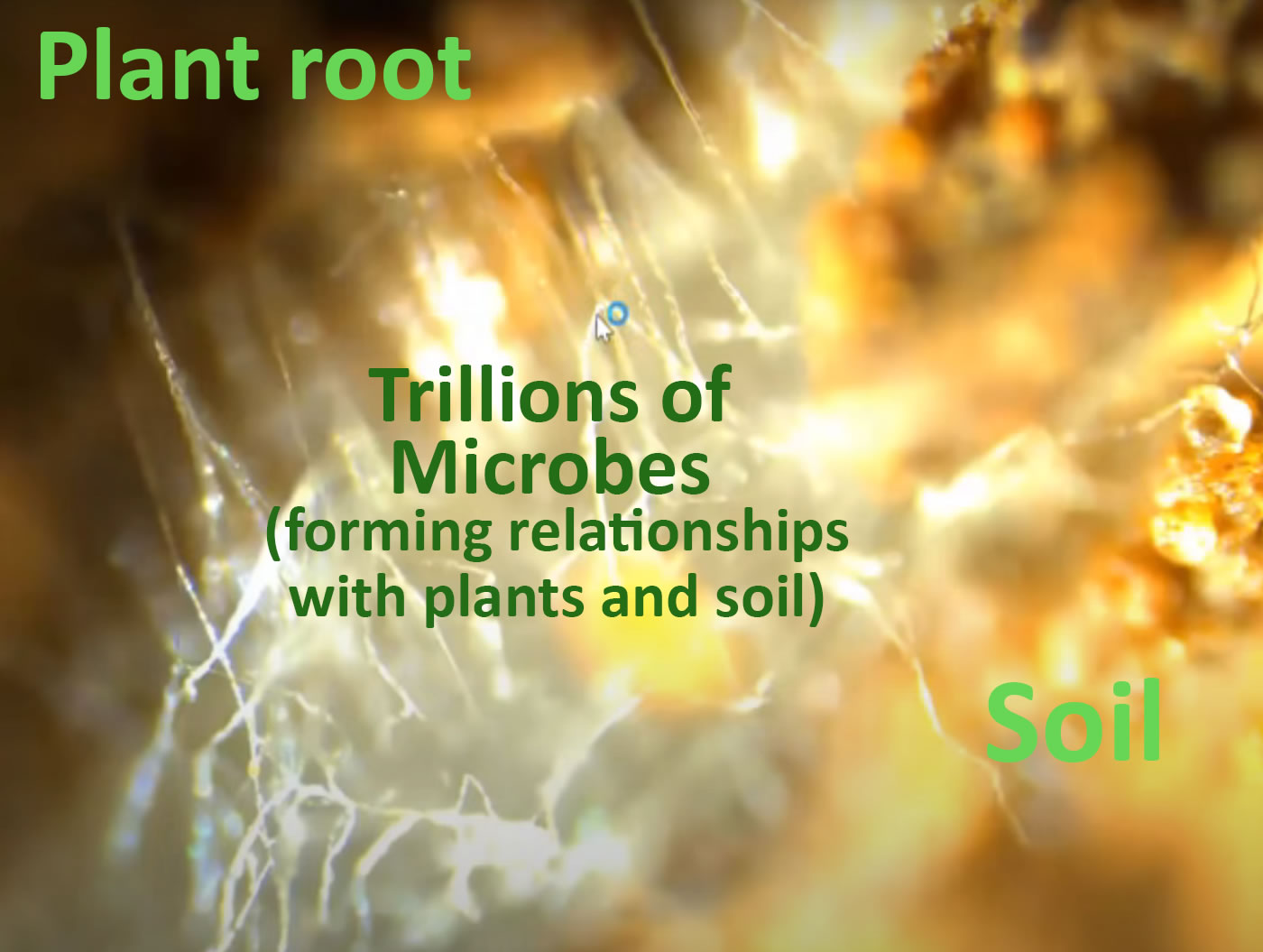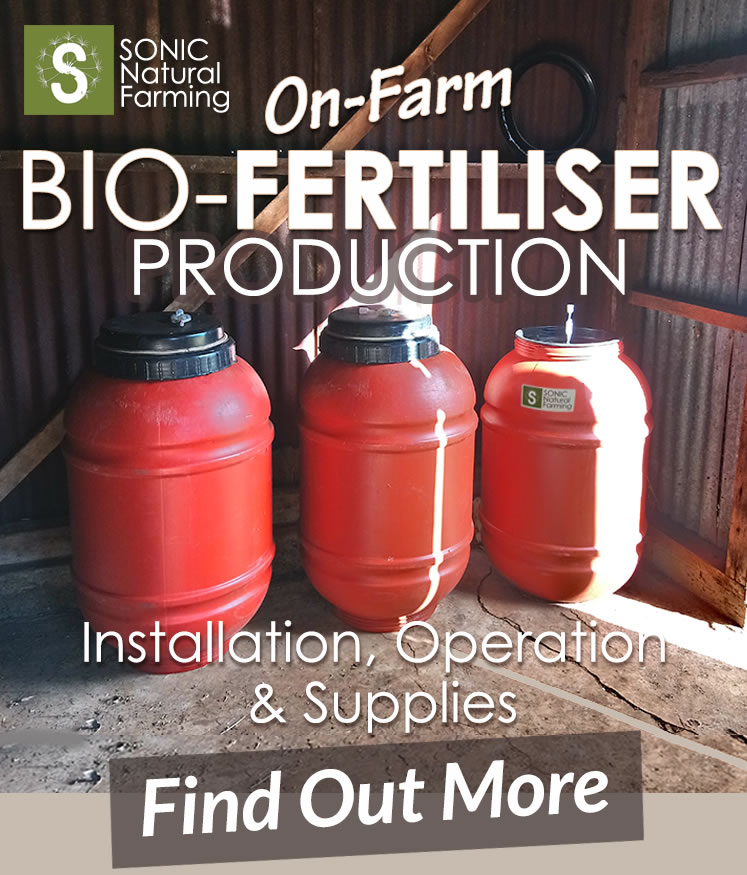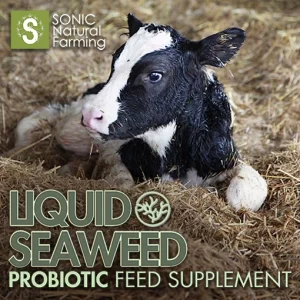Beneficial soil microorganisms have more functions than science knows. The beneficial influences of soil microbes on plant growth are countless. In this article we’ll explore some of these influences and find out why your soil needs biology more than minerals.
6 Key Functions of Soil Microbes
1. Soil Microorganisms Fix Atmospheric Nitrogen
Nitrogen fixation plays a crucial role and benefit to plants. It is a process by which certain microorganisms convert atmospheric nitrogen into a form that plants can utilise for their growth and development.
In the soil, nitrogen fixation is primarily carried out by bacteria known as diazotrophs. These bacteria have the unique ability to convert atmospheric nitrogen gas (N2) into ammonia (NH3), which can then be further converted into plant-available forms.
The availability of fixed nitrogen in the soil is essential for plant nutrition, and is an essential element required for various biological processes, including protein synthesis, chlorophyll production, and overall plant growth.
Most plants are unable to directly utilise atmospheric nitrogen due to its inert nature, but this is where nitrogen-fixing bacteria play a vital role.
By converting atmospheric nitrogen into usable forms, these bacteria contribute to increasing the nutrient content of the soil. This enhanced soil fertility benefits plants by providing them with an adequate supply of nitrogen for their metabolic needs.
2. Soil Microorganisms Unlock Bound Minerals
Soil microorganisms have the ability to unlock bound minerals in the soil, making minerals and trace elements available for plants to uptake. These bacteria have the ability to break down organic matter and release essential nutrients, such as phosphorus and potassium, which are often bound or “locked up” in the soil.
By breaking down these organic compounds, beneficial bacteria make these nutrients more readily available for plants to uptake.
Locked up minerals refer to nutrients that are present in the soil but are not readily accessible to plants due to various factors like pH levels, organic matter content, or mineral composition. Beneficial soil microbes help break down these mineral complexes through processes like mineral solubilisation and chelation.
Mineral Solubilisation; involves the secretion of organic acids by certain microbes that can dissolve mineral compounds, releasing essential nutrients like phosphorus, potassium, and iron into a form that plants can absorb.
Chelation; is another mechanism where soil biology produce compounds called chelators that bind with minerals and prevent them from becoming insoluble or fixed in the soil.
By accessing locked up minerals, beneficial soil microbes enhance nutrient availability for plants. This leads to improved plant growth, increased nutrient uptake efficiency, and ultimately better overall crop health and yield.

3. Soil Microbes Break Down Organic Matter
Soil microbes play a crucial role in breaking down organic matter in the soil, which in turn benefits plants and enhances soil fertility. These microscopic organisms, including bacteria, fungi, and protozoa, are responsible for the decomposition of dead plant and animal material into simpler forms.
When organic matter such as leaves, roots, and other plant debris accumulate on the soil surface or are incorporated into the soil, soil microbes begin their work.
Microbes secrete enzymes that break down complex organic compounds into smaller molecules that can be easily absorbed by plants
The process of decomposition releases essential nutrients like nitrogen, phosphorus, and potassium back into the soil. These nutrients are then made available to plants for growth and development.

Fungal networks in the soil, (above image).
4. Soil Biology Builds Soil Structure
As organic matter decomposes, it improves the structure of the soil by enhancing its ability to hold water and nutrients.
Furthermore, beneficial bacteria produce sticky substances that bind soil particles together, improving soil aggregation and water infiltration. This activity helps create a favorable environment for plant roots to access both water and nutrients.
Microbes contribute to the formation of stable soil aggregates, which enhances water infiltration and retention.
Furthermore, soil biology also forms mutualistic relationships with plants through symbiotic associations such as mycorrhizal fungi. These fungi form a network of fine threads called hyphae that extend into the root system of plants. In return for sugars produced by photosynthesis in plant leaves, mycorrhizal fungi help plants access nutrients from the soil more efficiently.
5. Biological Networks In The Soil Support Plant Immunity
Beneficial soil microorganisms play a crucial role in supporting plant immunity and enhancing soil fertility. These microorganisms form complex networks in the soil, known as microbial communities, which interact with plants in various ways.
One of the key benefits of microbial networks is their ability to improve plant health and enhance resistance against diseases and pests.
Certain strains of beneficial microbes can directly suppress pathogenic organisms by producing antimicrobial compounds or competing for resources. This helps to reduce the incidence and severity of plant diseases, leading to healthier crops.

6. Soil Microorganisms Detox Chemicals From The Soil
The presence of beneficial microbes in the soil plays a crucial role in detoxifying it from harmful chemicals and pollutants. Soil microorganisms have the ability to break down and metabolise various toxic substances, thus improving soil health and fertility.
Beneficial microbes, and the addition of Biological Soil amendments containing microorganisms such as lactobacillus, have the capacity to degrade organic pollutants through a process called biodegradation. They utilise enzymes to break down complex compounds into simpler forms that can be easily absorbed by plants or further decomposed by other microorganisms.
Detoxification not only reduces the concentration of harmful substances in the soil but also prevents their migration into groundwater or nearby ecosystems.
In summary, the presence of beneficial microorgansms, and microbial networks, in the soil is crucial for supporting plant immunity, nutrient cycling, and maintaining soil fertility.
Harnessing the potential of these microbes, through using regenerative agricultural practices, can lead to healthier crops, reduced reliance on synthetic inputs, and improved overall ecosystem functioning.
If you were curious to know why your soil need biology more than minerals, when the soil is given what it needs to support the beneficial microorganisms and biological networks, then the microbes will find the minerals necessary for plant nutrition.

Colonies of lactic acid bacteria in SONIC Liquid Fish Hydrolysate (above image).
Probiotics for Plants
Probiotics for human health are not new but the concept of managing plant health through the manipulation of probiotic organisms associated with plants has gained interest only recently.
Plant-specific stimulation of specific microbial groups in their rhizosphere suggests that plants may have evolved to strategically stimulate and support particular microbial groups capable of producing antibiotics as a defence against diseases caused by soil-borne pathogens.
Diseases caused by soil-borne fungal pathogens result in more than $150 million of annual production losses in cereal crops in Australia.
– Beneficial Microorganisms for Sustainable Agriculture by Vadakattu V.S.R. Gupta, CSIRO Ecosystem Sciences, PMB 2, Glen Osmond, SA 5064, Australia. Download Article
Disclaimer:
The information in this article is for general guidance and not professional advice—always consider your individual circumstances or consult with a professional before making decisions. For more details, please review our full Disclaimer.
Unlock the potential of your land by tailoring organic fertilisers to suit your unique Aussie soil type. The right organic fertilisers—like compost, biochar, or liquid fish—can not only boost crop resilience, but also improve soil fertility and sustainability over time.
Discover some of the most popular natural organic fertilisers you can tailor to your soil. Download our ‘Organic Fertilisers by Soil Type – Quick Guide’ to get started!
“The ultimate goal of farming is not the growing of crops, but the cultivation and perfection of human beings.”

















